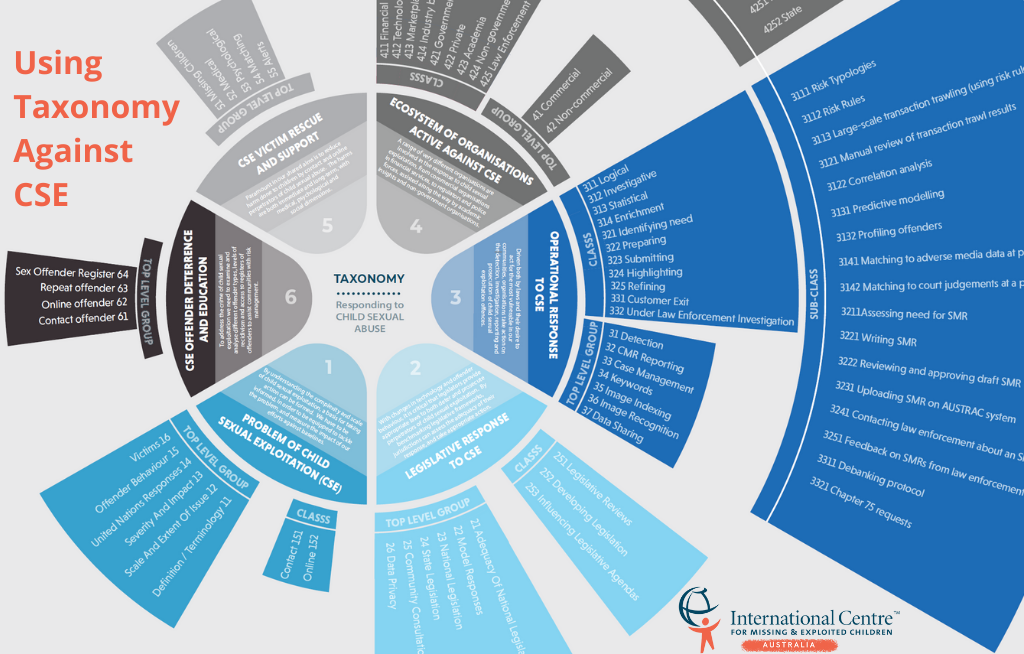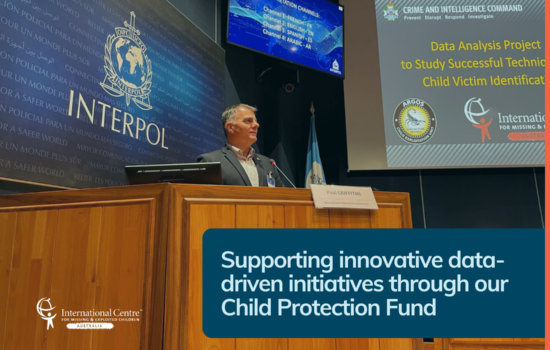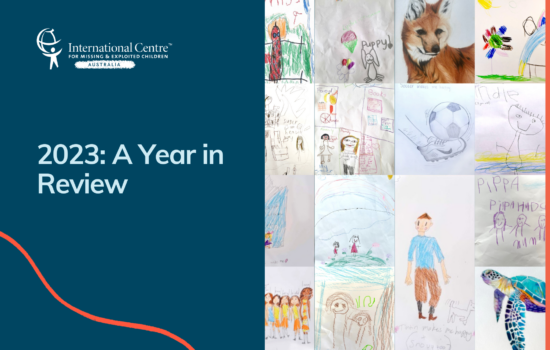4 Ways Taxonomy Helps us to Work Against Child Sexual Exploitation

Organisations across various industries and jurisdictions are working to put an end to child sexual exploitation (CSE). At the ICMEC Australia, we bring them together to share challenges, insights and new ways of working – because when we work together, we can be more effective.
One of our biggest challenges in facilitating open collaboration has been language. There is currently no consistent terminology or logical structure for the knowledge and terms relevant to CSE responses. For instance, many Australian financial services organisations use a range of terms for aspects of crime typologies, ‘red flags’, alerts and indicators – all of which are used in detection processes.
This makes effective communication across organisations difficult – and hinders our progress in tackling CSE.
But an ICMEC taxonomy or system of classification could be the answer we’ve been looking for.
What is Taxonomy?
Simply put, taxonomy is a system for naming and grouping things with similar qualities in hierarchical order.
In zoology and botany, the animal and plant kingdoms are classified into multi-level groups. A large group of warm-blooded creatures might be labelled as mammals (in contrast to cold-blooded reptiles), and within mammals, there would be a family of primates, which includes hominids like us. This is an example of taxonomy in action.
A taxonomy deepens our understanding of a complex topic and accelerates our ability to associate information and act.
Four Benefits of Taxonomy in Tackling CSE
Our work in CSE most certainly needs those benefits.
CSE is complex. Perpetrators constantly change their behaviour and tactics to avoid detection. We need to develop ways to better understand the topic and the response ecosystem, so we can make decisions and act quickly.
Here are four ways taxonomy can help:
1. Provides a Consistent Framework
Taxonomy’s main purpose is to help us organise complex information in a logical way, so we can make sense of the world around us.
By creating a classification system for responses to CSE, we can give people across industries a consistent framework and terminology that aids collaboration and progress.
2. Accelerates Access to Information
With a consistent framework, people can find relevant information faster – spending less time searching and more time developing new, effective CSE responses.
Taxonomy will also help users on the ICMEC platform find and connect with people and organisations with key expertise.
3. Builds Understanding
Taxonomy also fast-tracks newcomers’ understanding of the topic by providing the scaffold for new information. This helps organisations and industries respond faster and more effectively to CSE.
4. Helps Prioritise Information and Resources
At ICMEC, taxonomy enables us to track information and content that is most relevant to our members – allowing us to report on the most important topics.
This also helps us focus our limited resources on activities and information that’s most useful to members.
A Work in Progress
We’ve built the first version of our taxonomy and tested its application, patching any gaps along the way. We’ll continue to tweak and refine it as we learn more to make sure the people using it get maximum value out of it.
CSE is a complex, global issue that requires time, effort and collaboration. Establishing a standardised taxonomy will help get us all on the same page. And it’s only when we’re all speaking a shared language that we can do our best work to stop CSE – together.



